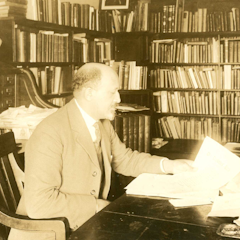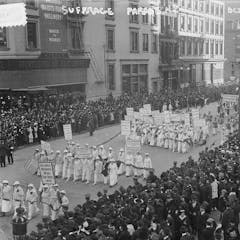
Articles sur W.E.B. DuBois
Ensemble des articles

Over a century ago, white Philadelphia elites believed the city was going to the dogs – and they blamed poor Black inner-city residents instead of the racism that kept this group disenfranchised.

Though progressive politics at the turn of the 20th century called for the protection of America’s national parks, it did so for the enjoyment of white people.

While it’s widely believed that Howard University came to be known as “The Mecca” in the 1960s, new evidence shows the nickname is more than half a century older than that.

With over 200 publications to his name, his three most recent books give a sense of why he is so famous as a historian.

In China, Robeson continues to be remembered as a loyal friend celebrated for popularizing what became China’s national anthem and building solidarity between peoples of China and African Americans.

A scholar of African American studies explores how the former secretary of state, who died at 84, dealt with what WEB DuBois described as the ‘double-consciousness’ of being Black and American.

The increased migration of Africans and the global growth of hip hop culture has seen a dynamic new generation of Pan Africanism emerge.

As editor of the magazine for 24 years, Du Bois featured articles about biology, evolution, archaeology in Africa and more to refute the rampant scientific racism of the early 20th century.

In 1911, lesbians led the nation’s largest feminist organization. They promoted a diverse and inclusive women’s rights movement.

Howard Thurman, a mentor to MLK, first met Gandhi during a visit to India in 1936. He came to understand nonviolence as a force more powerful than hate that had the power to transform the world.
